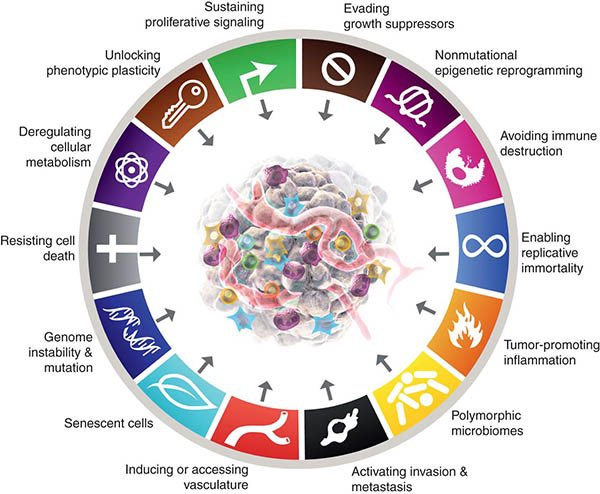Precision-aHI Oncology: A Safer, Scalable Replacement Than mRNA Cancer Vaccines
Signal-Based Medicine | Safer Replacement Than mRNA Cancer Vaccines
Harnessing the Power of aHI-Engineered Peptides and Small Molecules for Personalized Cancer Care
The push for rapid “48-hour mRNA cancer vaccine deployment” represents a profit-driven race that places speed over safety. This strategy mirrors the rushed interventions seen during the pandemic, resulting in serious unintended consequences—immune dysregulation, genetic instability, and persistent health complications.
In contrast, Neo7’s Precision-aHI Oncology Platform offers a safer, scalable, and personalized alternative through precision-engineered peptides and small molecules. Our advanced precision aHI-driven approach customizes therapies to each patient’s unique molecular and tissue-specific profile, ensuring optimal efficacy with significantly reduced risks.
The Flaws of mRNA-Based Cancer Vaccines
mRNA technologies have demonstrated significant inherent risk and harm:
Genetic Instability: mRNA can interfere with cellular processes, leading to unpredictable outcomes.
Severe Life-Threatening Complications: Widespread damage to critical human systems and organs poses a significant threat to health, resilience, and survival.
Immune Dysregulation: Overstimulation of the immune system can trigger autoimmune-like responses or cause tissue damage.
High Variability and Fragility: mRNA production is expensive, environmentally taxing, and dependent on fragile supply chains.
Rogue Protein-Protein Interactions (PPI): Aberrant PPI signaling can cause uncontrolled cellular responses, exacerbating disease progression.
These risks highlight the urgent need for safer, biologically compatible alternatives—a gap Neo7’s Precision-aHI solutions fill.
Neo7 Precision-aHI: A New Standard in Personalized Cancer Care
Our approach focuses on patient-specific molecular surveillance, providing therapies that are signal protein- and tissue-specific. By continuously analyzing and integrating real-time patient data, our precision aHI-driven platform, integrating human intelligence with PBIMA hybrid molecular technology, enables precision therapeutics that adapt and improve over time.
Key Advantages:
Signal-Specific Molecular Profiling: aHI algorithms map the molecular landscape of each tissue type, ensuring precise therapeutic targeting.
Dynamic Modeling and Real-Time Adaptation: Continuous patient data updates enhance therapeutic accuracy and effectiveness.
Scalable Automation: Rapid synthesis of peptides and small molecules ensures broad deployment without sacrificing precision or safety.
Targeting Cancer with Precision
Neo7’s Precision-aHI platform identifies key molecular targets across a range of cancers. Below are examples of class-specific targets that guide therapeutic design:
1. Kinases – Essential Growth Regulators
EGFR: Common in lung and colorectal cancers
BRAF: Mutated in melanoma and thyroid cancers
ALK: Found in lung cancer
2. Receptors – Key Cellular Signaling Pathways
HER2: Overexpressed in breast and gastric cancers
VEGFR: Critical in highly angiogenic tumors (glioblastoma)
AR (Androgen Receptor): A driver in prostate cancer
3. Immune Checkpoints – Controlling Immune Responses
PD-1/PD-L1: Present in lung, melanoma, and head-and-neck cancers
CTLA-4: Targeted in immune-responsive tumors like melanoma
Emerging Targets: TIM, LAG-3, CD27
4. Enzymes – Metabolic and DNA Repair Regulators
IDH1/IDH2: Mutated in gliomas and acute myeloid leukemia
PARP1: Essential in BRCA-mutated breast and ovarian cancers
5. Immune Regulators – Modulating the Tumor Microenvironment
TGF-β: Drives immune suppression in pancreatic cancer
IL-10: Linked to immune evasion in colorectal cancer
6. Angiogenic Signal Receptors – Vascular Growth Pathways
VEGF and VEGFR: Key drivers in renal cell carcinoma, glioblastoma, and metastatic disease
7. DNA Repair Proteins – Maintaining Genomic Stability
BRCA1/2: Crucial in breast, ovarian, and prostate cancers
ATM: Altered in lymphomas and pancreatic cancer
8. Tumor Suppressors – Guardians of the Genome
TP53: Mutated across nearly all cancer types
RB1: Frequently observed in retinoblastoma and bladder cancer
The Backbone of Neo7’s Precision-aHI
At the heart of our platform is an algorithmic array that integrates tissue-specific data to dynamically map hallmark disease expressions, Protein-Protein Interaction (PPI) networks, and OMICS relationships. This ensures therapies are not only tailored but continuously optimized for safety and efficacy.
Why aHI-Engineered Peptides and Small Molecules Are the Future
aHI-designed peptides and small molecules offer an ideal alternative to mRNA therapies by eliminating the risk of genetic interference and rogue cellular responses.
Key Benefits:
No Genetic Interference: Peptides and small molecules act directly, avoiding reliance on cellular machinery.
Enhanced Biological Compatibility: Align seamlessly with natural human biology for greater safety and predictability.
Minimized Off-Target Effects: Reduced risk of tissue destruction and immune misprogramming.
Unlike mRNA, which introduces external genetic material into cells, aHI peptides and small molecules that produce precise, predictable actions aligned with the body’s existing biology provide the superior choice for personalized cancer therapy.
Conclusion
Neo7’s Precision-aHI platform represents the next generation of cancer care: safe, scalable, and biologically precise. By replacing high-risk mRNA elements with signal-targeted peptides and small molecules, we are reshaping oncology—offering hope through innovation without compromising safety.
Contact: www.neo7bioscience.com/contactus








